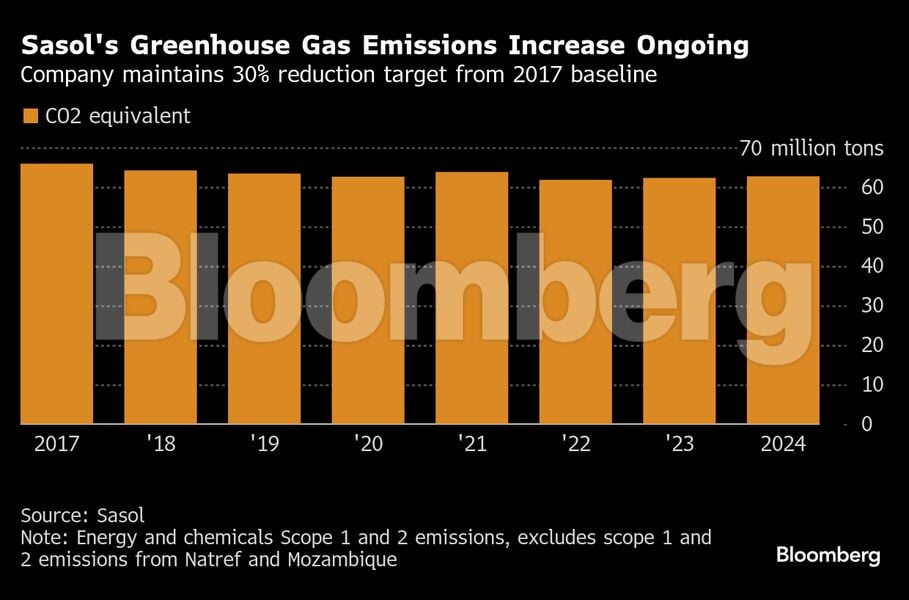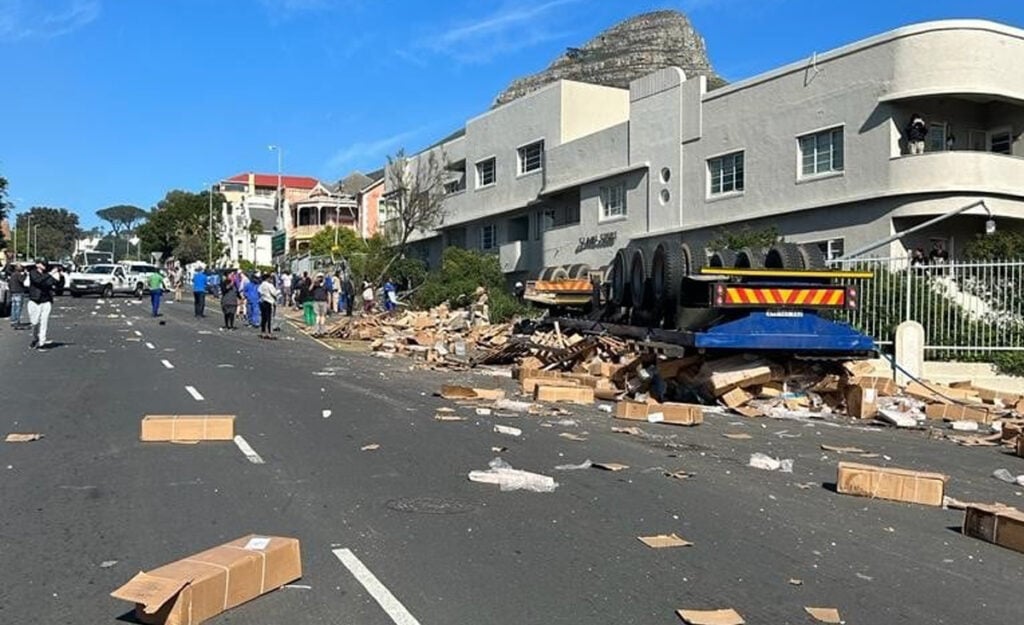
Sasol will hold its first Capital Markets Day since 2021 next week and investors will seek details on plans to lower emissions that dovetail with the production outlook for the world’s biggest producer of fuel and chemicals from coal.
South Africa’s second-largest company by revenue has maintained a target to reduce emissions 30% by 2030 despite a pivot back to coal under Sasol Chief Executive Officer Simon Baloyi, who took over the role just over a year ago.
The nation’s second-biggest polluter of greenhouse gases amended its earlier strategy to substitute the world’s dirtiest fossil fuel with natural gas and ultimately green hydrogen.
Shareholders who have seen the stock plunge 48% over the past 12 months anticipate a fuller picture of Sasol’s revised outlook promised on May 20.
In 2023, the company booked a full writedown of its Secunda refinery where it converts coal into synthetic fuels, and investors expect an update on output and cost cuts to form part of the strategy Sasol will unveil.
“The ‘cut volumes to cut emissions’ plan that led to a writedown of the Secunda assets and a massive derating of the stock clearly isn’t something that is appealing to investors longer term,” said Sriharsha Pappu, an analyst at HSBC Bank.
“They need to put forward a plan that provides clarity on longer-term volumes and terminal cash flows.”
Other factors that have punished Sasol’s stock include a volatile oil market that correlates with its fuel business and US President Donald Trump’s irregular tariff oscillations that affect supply chains.
The chemicals business, which includes a sprawling US complex, also suffered from a downturn, with Baloyi in January launching a revival of the unit that could open a path to a potentially listing.
“We will also be watching for updates on cost containment, capital discipline and how Sasol plans to offset margin pressures from still-weak chemicals markets and persisting global trade risks,” said Salih Yilmaz, a Bloomberg Intelligence analyst.
The strategy-update agenda will include progress on the international chemicals business, new business opportunities and navigating the energy transition “in a value-accretive way,” Baloyi said in a February results presentation.
The company “needs to provide catalysts” including a decarbonization strategy that’s return-focused, HSBC’s Pappu said in a note last month.
Sasol attracted criticism in the past from some of its biggest shareholders over its plans to lower greenhouse gases.
Baloyi has committed to keep the 30% reduction target in place, though it won’t be reached in the way that the company originally proposed.

Its emissions in 2024 fell 5% from the 2017 baseline it references to measure the target, even though they increased for a second consecutive year.
Sasol has deferred questions on emissions to the upcoming update, according to Tracey Davies, executive director of Just Share, a Cape Town-based activist group.
“We don’t have high expectations,” she said. “Our biggest concern would be that there’s some kind of retreat from the 2030 target.”











